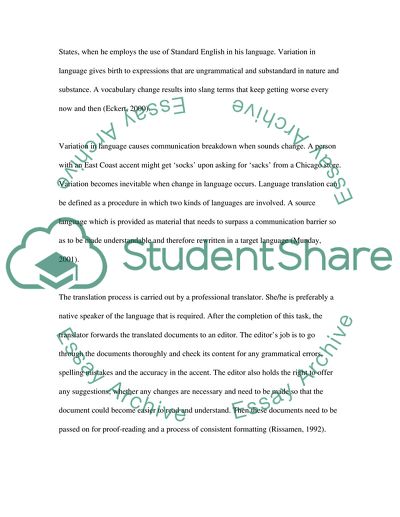Cite this document
(How Does Language Variation Affect The Role of The Translator Assignment, n.d.)
How Does Language Variation Affect The Role of The Translator Assignment. Retrieved from https://studentshare.org/other/1722192-how-does-language-variation-affect-the-role-of-the-translator
How Does Language Variation Affect The Role of The Translator Assignment. Retrieved from https://studentshare.org/other/1722192-how-does-language-variation-affect-the-role-of-the-translator
(How Does Language Variation Affect The Role of The Translator Assignment)
How Does Language Variation Affect The Role of The Translator Assignment. https://studentshare.org/other/1722192-how-does-language-variation-affect-the-role-of-the-translator.
How Does Language Variation Affect The Role of The Translator Assignment. https://studentshare.org/other/1722192-how-does-language-variation-affect-the-role-of-the-translator.
“How Does Language Variation Affect The Role of The Translator Assignment”, n.d. https://studentshare.org/other/1722192-how-does-language-variation-affect-the-role-of-the-translator.


